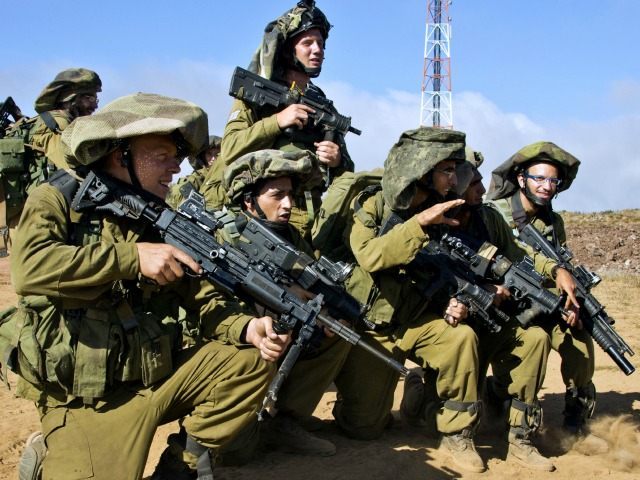Israel’s neighbors are buying arms on a scale that threatens its regional military superiority, the deputy Israeli air force chief said on Sunday, in remarks that appeared aimed at helping secure more defense aid from a reluctant Washington.
U.S. military payouts to Israel, currently around $3 billion annually, expire in 2018, and Israeli officials have spoken of needing around $4.5 billion. U.S. officials have balked at such an increase.
At the heart of the dispute is how to perpetuate Israel’s qualitative military edge – a guarantee that it gets more advanced U.S. weapons than Arab states get. Israel says it needs to bulk up its armed forces, not just upgrade their technologies, to keep ahead of potential foes.
“There are countries here which have plans that are being actualized for arms deals in the hundreds of billions of dollars, for the most advanced Western weaponry and the most advanced Eastern weaponry,” Brigadier-General Tal Kelman told a conference to promote Israel’s purchase of the advanced U.S. fighter jet the F-35.
Kelman did not specify countries other than Iran, which the Israelis fear will use sanctions relief from last year’s nuclear agreement to build up its ballistic missile program and arm Islamist guerillas like Lebanon’s Hezbollah militia.
Some Israeli officials have privately voiced concern about U.S. weapons systems being supplied to Western-aligned Gulf Arabs, as well as Egyptian interest in advanced Russian arms, though in neither case are the countries openly hostile toward Israel.
“There is a very great danger here, because today’s enemy can be tomorrow’s friend, and today’s friend could be tomorrow’s enemy,” Kelman told the forum, hosted by Israel Defense magazine and Fisher Brothers Institute for Air and Space Strategic Studies.
“There is a potential here for the erosion of the IDF’s (Israel Defence Force) qualitative edge and the IAF’s (Israel air force) qualitative edge.”
Russia’s military intervention last year in Syria’s civil war has also worried Israel, given Moscow’s dispatch of S-300 and S-400 air defense systems capable of seeing deep into its territory.
A slide projected at the conference by Gary North, a retired U.S. air force general now with F-35 manufacturer Lockheed Martin (LMT.N), showed Russian radars in Syria covering much of Israel as well as its Mediterranean training areas. The F-35 has stealth capabilities.

COMMENTS
Please let us know if you're having issues with commenting.